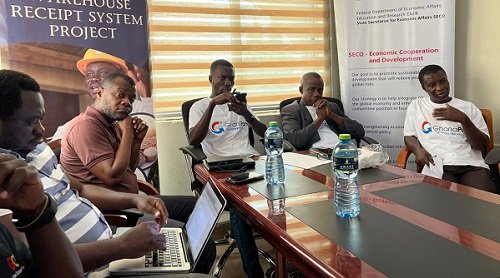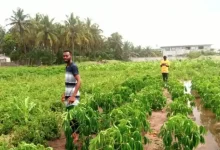
The Management of the Kintampo Rural Bank in the Bono Region has pledged to use the Warehouse Receipt System (WRS) platform to grant more loans to smallholder farmers to increase their agricultural activities.
The officials of the bank including the Chief Executive Officer, Mr Martin Mensah indicated that the Ghana WRS project being implemented by the IFC World Bank Group presents real opportunities for them to increase lending to smallholder farmers to enable them increase production.
The Chief Executive Officer disclosed that the partnership with the project stakeholders provides a solid foundation for a better future for the farmers.
“We want to grant credit, but farmers do not have the matching collateral, but with this less risky arrangement we are going to increase our agricultural portfolio to support both commercial and smallholder farmers”, he explained in an interview.
At the end of a WRS training session organised by the IFC project team in Kintampo, the Credit Officer in charge of the Kintampo Branch, Mr Samuel Owusu also observed that the project initiative was helping them to eliminate the major barriers to lending to agricultural businesses.
“Once the concerns of farmers’ collateral are addressed through this initiative, we are ready to grant more loans to farmers”, he stated.
With financial support from the Switzerland State Secretariat for Economic Affairs (SECO), the IFC Ghana WRS project is being implemented in nine regions in the grains value chain of the country.
It is a technical assistance and advisory services project aimed at setting up a well-functioning and regulated WRS, that is expected to facilitate an increased access to credit to farmers and the supply chain, access to structured markets and professional warehousing to reduce post-harvest storage loses.
The intervention focuses on supporting a well-functioning WRS for the successful operations of the Ghana Commodity Exchange (GCX).
The project addresses WRS on a policy and regulatory level, system level, including technical advisory, training, capacity building and awareness raising for various stakeholders in the public and private sector.







